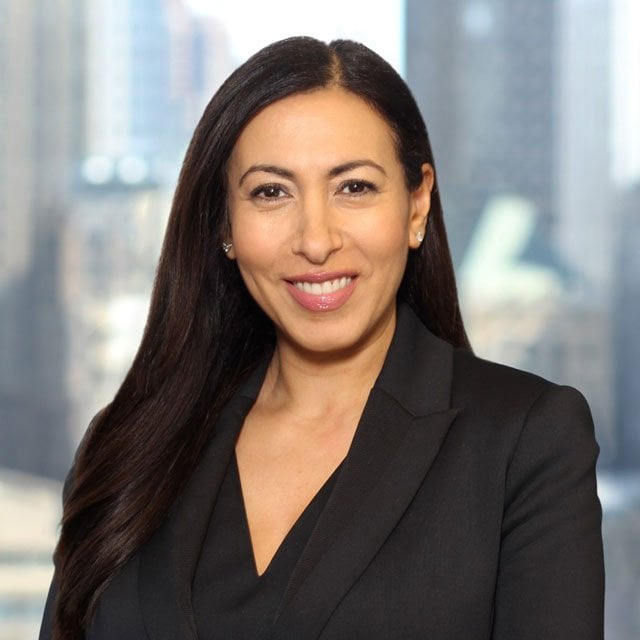Alts 'Should Be Core' in Most Investors' Portfolios: Merrill

Alternative investments may still reside mainly in the portfolios of the super-rich, but ownership is expanding to investors who aren’t in that rarefied segment.
“Certainly, there are a lot of dynamics in the market today that make access to alts a necessity,” Nancy Fahmy, head of the investment solutions group for Merrill and Bank of America Private Bank, argues in an interview with ThinkAdvisor. “Most clients should have a diversified portfolio that includes both traditional investments and alternatives.”
Merrill, BofA’s wealth management division that was a 2023 ThinkAdvisor Luminaries award finalist for financial and investment innovation, is at the forefront of making alts more accessible to investors no matter their level of wealth.
Indeed, the firm now allows accredited individual investors with a net worth of $1 million access to its alt offerings.
In the interview with Fahmy, who before joining BofA in 2006 was in senior derivatives-specialist roles at Deutsche Bank and Bankers Trust, she explains alts’ numerous benefits and points to the development of a greater number of tax-efficient alts for individuals as “the next wave of product development” in the space.
Here are excerpts from our conversation:
THINKADVISOR: Why is investing in alternatives becoming a more popular trend?
NANCY FAHMY: A client survey [2024 Bank of America Private Bank Study of Wealthy Americans] we conducted shows that most clients are demanding access to alternatives. More clients are indicating that they’re increasing their allocation to alts.
They have very clear client benefits, and, certainly, there are a lot of dynamics in the market today that make access to alts a necessity.
What are some of those benefits?
You can achieve certain types of outcomes by using alternatives that you can’t achieve with traditional investments. The most significant are diversification benefits.
[For example], there are way more private companies than public ones, so private markets [are] a piece of the investment universe that you’d be completely excluded from if you didn’t allocate to alts.
Should all clients have the opportunity to invest in alts?
I believe that most clients should have access to them, that most clients should have a well-diversified portfolio that includes both traditional investments and alternatives.
Alts should be core to most clients’ portfolios as long as they can withstand the illiquidity, which most clients can.
Why is Merrill giving access to alts to more individual investors?
We think that alts shouldn’t just be accessible to wealthy clients; they should be accessible to all individuals. [Going far back historically], alts were available only to institutional clients.
Then they were accessible to [retail] clients but only those that had a $5 million net worth or greater. That excluded a very substantial set of clients that we serve.
We now allow individuals with a net worth of $1 million, who are accredited investors, access to alts.
I would say that our firm is leading the charge to make alts more accessible to individual investors regardless of their wealth level.
Compared to even 10 years ago, alts are now much more accessible to [almost] every type of client — all the way to ultra-high-net-worth clients and family offices.
There’s been an incredible evolution that has accelerated in the last five years or so making alts more accessible to more clients.
What alts does Merrill offer clients who have a net worth of $1 million to $5 million?
A number of different solutions across private equity, private credit, real estate.
The solutions available to a $1 million to $5 million client are different from those available to a $5 million-plus client, and solutions for $50 million-plus clients are different from those.
Do ultra-high-net-worth clients have special opportunities?
We have a program for people who want direct access to private companies, for example. That’s certainly been a trend.




